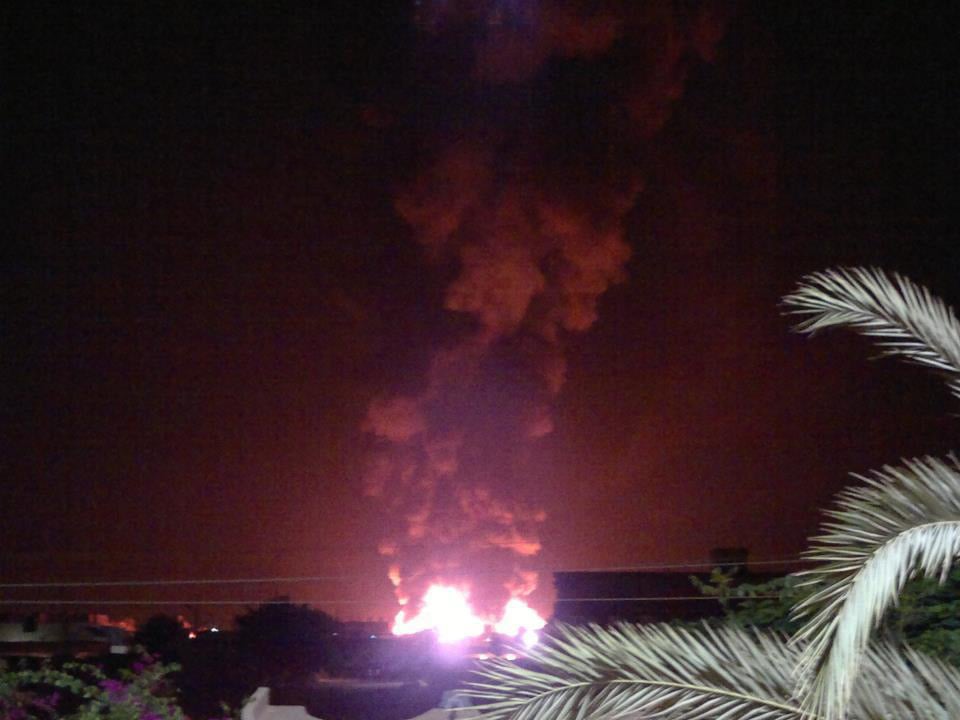By Umar Khan.
Tripoli, 13 October:
The Muslim Brotherhood have begun a ten-day cultural event to celebrate the new Libya entitled ‘Arab Spring: . . .[restrict]Opportunities and Challenges’.
The event, which is taking place in Tripoli, started on 11 October in a ceremony attended by the head of the Libyan Muslim Brother, Bashir Kabti and many other known personalities.
During the ten days, there will be rounds of discussions on various topics, including several presentations by leaders. A small library has also been up on one side of the hall selling books on a wide range of subjects.
Amongst those to address the audience, in addition to Kibati, was the head of the executive committee of the Tripoli Local Council, Adnan Gherwi. Kabti, speaking to a crowd of around 500 people, explained the sacrifices of all those who were imprisoned by the old regime because of their affiliation with the Muslim Brotherhood. He saluted the Libyan people, who suffered for 42 years but who ultimately emerged victorious. Kabti also highlighted the role the Brotherhood played in the revolution and outlined its priorities.
Kabti said that the Brotherhood was working as a civil society organisation and focusing on a range of issues in the social, cultural, economic and political fields as well as on reconstruction.
He said that it was a great achievement of the people to elect 200 members of the National Congress to oversee the drafting of the new constitution of Libya. Kabti, speaking about the priorities, said that the formation of the National Army, disbanding of the militias and collection of weapons, return of the police and an active judiciary should be on the top on the priority list for the National Congress.
Kabti also said that Libya is one country and its geographical integrity should be preserved and that it is not only the duty of the GNC but also of civil society organisations and the people of Libya to make sure Libya remains one strong country. Speaking about the foreign intervention, Kabti also said that the sovereignty of the country should respected by the international community and no country has the right to interfere in the internal affairs of Libya.
Speaking to the Libya Herald, Kabti acknowledged the difficulties that the Brotherhood is facing in Libya and blamed them on several decades of propaganda by the Qaddafi regime.
“People still see the Brotherhood through the eyes of Qaddafi”, Kabati said. “He spread lies about us not only in Libya but in other countries as well. He misinformed people that the Brotherhood are extremists and don’t believe in equality between men and women. These were pure lies and we were not able to explain our position because our members were persecuted and the Libyan people started to believe his propaganda.”
Kabti also said that countering the decades-old propaganda would take time as the Brotherhood has only limited financial resources.
“We tried to counter all the propaganda against us but we don’t have enough financial resources to afford a massive campaign. We are continuing our work and hopefully it won’t take long to correct the misinformation.”
Speaking about the vision of a future Libyan state according to Brotherhood ideals and the creation of Justice & Construction Party, Kabti said that it should be based on the Islamic frame of reference. “When we thought about the political side, the JCP was created but we were clear that it should be based on an Islamic frame of reference that and anybody who accepts that would be welcome in the party.”
Asked what exactly ‘Marjeea Islamia’ (Islamic frame of reference) means for the Brotherhood, Kabti replied: “It means that no law should be made in Libya that is against our religion. As we know, all Libyans are practicing Muslims and we don’t have many opposing groups here and there is no sectarianism so it is not a problem. This is something we need and realised after living in Western society, especially in terms of the social situation.”
Kabti concluded by saying that Brotherhood was against appointing any loyalist figures in leading positions and blamed the slowness of the reconciliation process on the weak government:
“The reconciliation committees have not achieved much because the involved parties know how weak the government is and it cannot back the words with actions.”
Regarding the efforts of Qaddafi loyalist trying to get back into powerful positions in Libya, Kabti insisted that the Brotherhood “would never accept any former regime figure to be appointed in the new system.” [/restrict]









